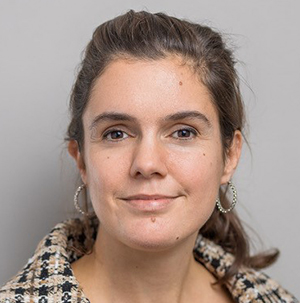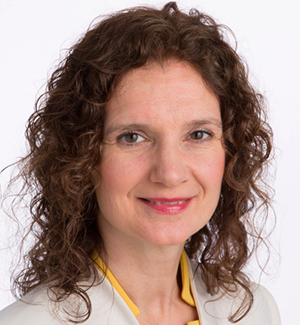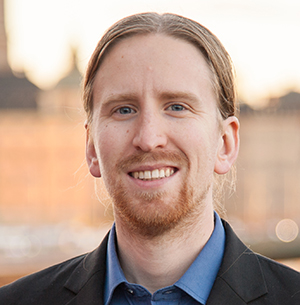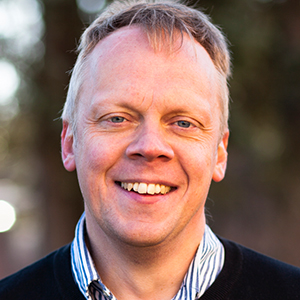“Missing the creative small talk”
What’s it like to research remotely? Many things are continuing as usual and meetings have become more effective. At the same time, projects and conferences have been postponed to a later date. We asked several researchers how they have been impacted by the coronavirus pandemic.

Nicole Kringos , Professor of Highway Engineering, has been on campus on three occasions since the directive on working from home was announced in early spring. The buildings and labs were eerily empty each time.
“I have encouraged everyone in my group to work from home. We have a Zoom meeting online once a week,” she says.
Some research work has been put on ice, other parts have been reorganised:
“Lab experiments, conferences and workshops involving partners in industry have not been able to be held. However, people who had planned to do lab work have been able to write research applications instead, or spend time studying the literature that they had not had time to do before.”
Contact with the enterprise sector in particular has had to be put on hold.
“The downturn in the economy has put a dampener on many parts of industry, and at times like this, research and development are not a priority. However, we will hopefully be able to catch up again in the autumn.”
One challenge has been to stay in contact with everyone in the research group, not least in the case of international doctoral students and researchers.

“Many of them have felt isolated and it has been important for me to keep an eye on their state of mind. This is difficult to discern when you are in touch by screen, it does not give you enough contact to be able to see things from the right perspective,” she says.
Lina Bertling Tjernberg , Professor of Power Grid Technology, also fears that a tighter economy in the wake of the coronavirus will impact research. She develops methods and models to support decision-making within future energy technologies and electrification.
“For example, this can concern offshore wind power, an area that can be directly affected by the cancellation of investment decisions or that financing bodies reduce their budgets.”
In purely practical terms, she has been able to continue her research in the spring, even though it has been difficult to stay in proper touch with certain international contacts.
“One visiting doctoral student from China flew home before we had a chance to meet, a doctoral student from Ethiopia is in Sweden but we have not been able to work at the same table, one student from France is stuck in The Netherlands,” she says.

It has been necessary to organise regular virtual meetings to continue the work that had been planned, but the lack of physical meetings has been restricting.
“Face to face meetings are very important and we have had to put in a real effort to keep the tempo and inspiration up throughout this period,” she says.
The hardest thing has been to maintain a proper work-life balance. Bertling Tjernberg and her husband had just come back to Sweden after a leave of absence when the coronavirus epidemic broke out.
“We were unsure whether to take the children to pre-school due to the uncertainty surrounding the way the pandemic was developing. At the start, we were working full-time from home with two young children to take care of. It was really exhausting.”
For Erik Almlöf , a doctoral student at the Integrated Transport Research Lab ITRL, the pandemic has made his working days far more intensive. The reduction in travel in society during the coronavirus has persuaded the lab to start studying the changing travel habits of people living in big cities. Almlöf is in the middle of a survey on public transport.

“In my own particular case, I have become better at working from home, with more discipline than before,” says Almlöf, who misses the social interaction and spontaneous meetings.
“I am really worried that creative small talk has disappeared. For example, a colleague talking about their project during a departmental meeting who I then caught up with over coffee later. Spontaneous meetings are important, that’s when we come up with the most interesting ideas.”
The working environment is an issue of concern. Martin Edin Grimheden , Head of the Department of Machine Design, feels that working remotely has further developed the meeting culture.
“I don’t think we will ever go back to the “normal situation” as it was before. For example, we do a great deal of travelling and had low attendance at our group meetings. We now have completely different digital opportunities, meetings have become far more effective and with a higher attendance, so I think we will continue with this no matter where in the world we find ourselves.”
Text: Christer Gummeson